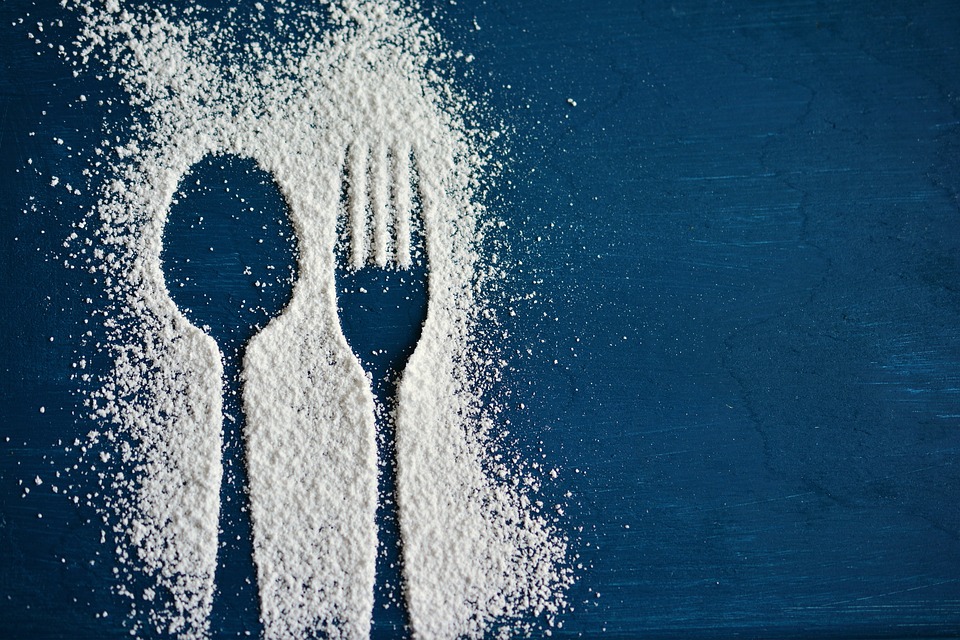Do You Need to Worry about Your High Androgen Levels?
Jun 21, 2018
Have you noticed you’re getting more than your fair share of unwanted facial hair?
Perhaps despite being well out of your teenage years (ahem!), you still keep breaking out with acne?
Or you’re starting to get slightly worried about how thin your hair is becoming, the mood swings are becoming more intense, the belly fat is piling on and you’ve never felt worse.
If this sounds familiar, then your androgen levels could be high, and you might also be suffering from polycystic ovary syndrome (PCOS) too.
Unlike many of the other hormonal imbalances I talk about, this is one which has probably been there throughout most of your life, yet has never been diagnosed. Even if you have been formally diagnosed with PCOS or high androgen levels (hyperandrogenism), you’ll often find that your symptoms often get worse as you approach the menopause.
I see it on a regular basis when working with my clients. I see the huge impact the symptoms have on their health, their self-esteem and their happiness, and I see how desperate it can leave them feeling.
That’s why this week I’d like to talk more about high androgen levels and help you to get the right answers if this is something you’re struggling with.
I’ll talk about what androgens are (including why they’re not just for boys ), what happens when your androgen levels are high and also why this happens.
I’ll also be sharing some tips on what you can do to lower your androgen levels without turning to prescription drugs. Let’s have a look.
What are androgens?
Let me first explain what androgens are. They’re a group of hormones which are usually considered to be ‘male’ hormones, but us ladies make plenty of them too.
They include testosterone, androstenedione, dihydrotestosterone (DHT), dehydroepiandrosterone (DHEA) and DHEA sulfate (DHEA-S).
These are the hormones which play a massive role in puberty, triggering the development of underarm hair and pubic hair, and we produce them in our ovaries, adrenal glands and our fat cells.
After puberty, they also help regulate the function of your reproductive organs, help prevent bone loss, and play a role in sexual desire and satisfaction. Recent studies have also suggested that it might help regulate kidney and liver function too.
In our female bodies, their main job is to be converted into oestrogen for our bodies to use.
What happens if your androgen levels are too high?
As I mentioned at the start of this blog, high androgen levels can trigger all sorts of unwanted symptoms. These include:
- Acne
- Unwanted hair growth
- Thinning hair or even balding
- Excess belly fat
- Mood swings
- High blood pressure
- Hidradenitis suppurativa
- Polycystic ovaries
- Infertility
- Oily skin
- Reduced libido
- Type 2 diabetes
- Irregular periods
- Infertility
If this wasn’t enough, over the long term hyperandrogenism increases your risk of suffering from some serious health problems such as insulin resistance, diabetes, high cholesterol, high blood pressure and heart disease.
These are just one of the reasons why it’s so important to treat hyperandrogenism.

What causes high androgen levels?
It’s often difficult to pinpoint the cause of high androgen levels, as there are many factors involved. That being said, there are four factors which could make you more likely to suffer.
These include:
- Insulin resistance
As you’ll know if you’ve been reading my blogs for a while, insulin is the hormone which controls the amount of glucose in your blood.
When your blood glucose levels are high (perhaps you just ate something sweet like a doughnut) your pancras will release more insulin is released. If it drops (perhaps it’s been a while since you ate) your insulin levels will drop.
However, if you eating a lot of sweet foods, the cells in your body can become less effective at responding to this insulin, and you end up with far too much glucose circulating in your body. This stresses your body and triggers the release of those androgens.
- High levels of stress
Stress in general is one of the biggest contributing factors for a wide range of hormonal issues, especially high androgen levels and related conditions such as PCOS.
This is because stress signals to your pituitary gland that it needs to increase production of those so-called ‘stress hormones’ such as cortisol, adrenaline and noradrenaline. The very same hormone which makes this happen also stimulates the production of those androgen hormones.
As a result, you’ll feel worse than ever.
- Inflammation
High androgen levels can also be caused by chronic low-level inflammation in your body which can trigger the production of excess androgens, and increase the risk of a whole range of other serious health issues, such as heart disease and diabetes.
As you probably know, inflammation is your body’s immune response against a perceived attack. It’s your body’s way of staying safe and free from infection, and works brilliantly when you suffer an injury or illness. But when this low level inflammation stays present for a long time, your body goes into overdrive and cannot work as effectively as it should.
This is usually caused by lifestyle factors such as eating a poor diet, excess intake of sugar or dairy, food sensitivities, stress, alcohol or drugs, caffeine and lack of sleep.

- Your genes
High levels of androgens can also be inherited, so if your mother suffered with acne, excess facial hair or hair loss, it’s likely that you will too. However, inheriting the genes doesn’t mean that those genes will ever be expressed, or that you can’t do something about them.
What happens when you get to the menopause?
Many women think that once they get to the peri-menopause their androgen issues will be over, but this is sadly not the case.
Often those horrible symptoms such as hair loss, excess belly fat, acne and aggression continue, and you’re left wondering if it’s really fair to have acne and wrinkles at the same time!
Sometimes it’s during the menopausal years when your symptoms really start making themselves heard. They may have been there all along but your hormone levels have never been checked or your symptoms.

How to reduce your androgen levels
If you’re anything like many of my clients, you’ll have been reading through that list of symptoms and then the causes, nodding your head and wondering how it took you so long to realise.
You’re certainly not alone- in my experience, a huge number of women with high androgen levels remain undiagnosed, untreated and suffering.
But know that there’s always something you can to do treat your high androgen levels, whether you are still in your fertile years, edging towards the peri-menopause, slap-bang into your menopause transition, or even further along in your journey. It’s never too late.
Here are six ways you can transform how you’re feeling:
#1. Get your blood sugar under control
Because insulin is so closely connected with androgen production, you should first focus on getting your blood sugar levels under control. Do the following:
- Switch that white pasta, rice or bread for whole-food alternatives such as brown rice, quinoa and bulgar wheat which are higher in fibre and easier on your body.
- Team this with a small amount of protein to keep hunger at bay and help further regulate your blood sugar levels.
- Reduce the amount of sugary treats you’re eating such as biscuits, cake, juices, sweets, chocolate, ice-cream, and so on.
- Finally, make sure you’re eating regularly and not skipping meals.
Do this and you’ll notice extra bonuses too like improved energy levels, better quality sleep, fresher younger-looking skin and a better balanced mood.
#2. Eat an anti-inflammatory diet
Get rid of any low-level inflammation and help yourself rebalance from the inside by cleaning up your diet. Pile up your plate with plenty of colourful veggies, include healthy proteins and fats, increase your water consumption and really enjoy your food.
Avoid gluten, minimise sugars and ditch those overly processed, high-toxin foods in favour of wholefoods. Do this and you’ll soon notice a drastic improvement in your symptoms.
#3. Exercise
Make sure you’re getting enough exercise if you have high androgen levels. It will help improve any insulin resistance, help you lose weight, help you tackle stress and also leave you feeling empowered. Just be sure not to overdo it- over-exercise will worsen your symptoms and drive those androgen levels even higher.
I recommend you do weight training for optimal results. Stick with 3 x 30 minute sessions per week and mix it up with other beneficial forms of exercise like walking, Pilates, yoga or swimming.
#4. Consider herbs
There are several herbs which I’d highly recommend for reducing your androgen levels. These include vitex agnus castus (only if you’re peri-menopausal), Maca and Holy Basil. Please contact a herbalist for further information on dosage and safety.
#5: Supplement with Zinc
Zinc is somewhat of a wonder mineral when it comes to high androgen levels, PCOS, acne, hirsutism and hair loss.
This is because it helps reduce the production of androgens, helps control the production of insulin (see insulin resistance above), give your immune system a boost and also helps clear up your skin.
It’s recommended that you take 30-50 mg with your food. Don’t forget that you can also get zinc from your food. Great sources include pumpkin seeds, chickpeas, cashews, Kefir, mushrooms, spinach, lamb and beef.
#6. Support your gut health
An imbalance of the bacteria in the gut has been linked to PCOS and adrenal health, so it’s worth investing some time and effort into getting yours into tip-top shape. This will also help you remove toxins from your body, ensure you absorb as many of the nutrients from your food as possible and help balance your overall hormonal health.
Your first steps should always be to clean up your diet and reduce the stress in your life. Consider learning mindful meditation, visualisations, or practicing yoga.
It’s also worth increasing your intake of probiotics. Eat plenty of probiotic foods such as garlic, onion, cabbage and oregano, or take a probiotic supplement.
Also take apple cider vinegar with the ‘Mother’. Place one tablespoon into eight tablespoons of water, give it a good stir, and drink before one of your meals daily.

To conclude, don’t feel like you’ve been sentenced to a life of misery because of those horrible symptoms of hyperandrogenism. You can fight back and reduce those androgens, rebalance your hormones and get back your happiness without ever needing to take chemicals or mainstream drugs.
Follow the tips I’ve shared here and you will notice a massive difference.





